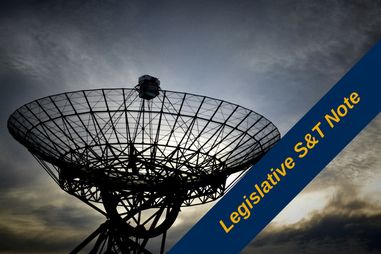ECONOMIC DEVELOPMENT
What are Regulatory Sandboxes?
This Science and Technology Note discusses the opportunities and challenges of regulatory sandboxes in supporting innovation in specific economic sectors, such as energy, legal, insurance, wetlands restoration, health care, and transportation.
Read More: What are Regulatory Sandboxes?Satellite Broadband Accessibility in West Virginia
This Legislative Science and Technology Note covers the availability of satellite broadband in West Virginia and offers policy options for expanding West Virginians’ access to satellite-based internet service.
Read More: Satellite Broadband Accessibility in West VirginiaFlood Resilience and West Virginia
This Science & Technology Note considers existing efforts and discusses policy options to enhance flood resilience in West Virginia. Resilience “is the capability to anticipate, prepare for, respond to, and recover [from disasters] with minimum damage.
Read More: Flood Resilience and West VirginiaCloud Services and Government in West Virginia
This Science and Technology note discusses challenges and opportunities associated with the West Virginia government’s adoption of cloud-based information technologies.
Read More: Cloud Services and Government in West VirginiaArtificial Intelligence, Government Services, and West Virginia
This note explores the opportunities and challenges of integrating artificial intelligence into West Virginia's government operations to improve efficiency and service delivery.
Read More: Artificial Intelligence, Government Services, and West VirginiaArtificial Intelligence, Economic Development, and West Virginia
This Science and Technology Note considers opportunities and challenges associated with the potential economic impacts of AI on West Virginia’s economic development and workforce.
Read More: Artificial Intelligence, Economic Development, and West Virginia



























